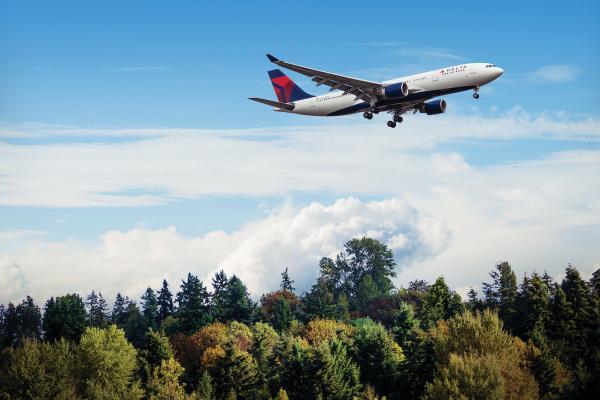
A handful of U.S. carriers updated the markets over the weekend on the impact of the COVID-19 pandemic, and the results were not pretty.
Delta Air Lines CEO Ed Bastian told employees in a memo that the company is burning through more than $60 million in cash every day, adding that “we know we still haven’t seen the bottom.”
Delta’s schedule for April was reduced by 80%, with 115,000 flights canceled. The Atlanta-based carrier flew just 38,000 customers on March 28, compared to normal late-March Saturday levels of approximately 600,000 passengers flown. “We continue to shrink our network as demand falls and will operate just enough flying to maintain essential services,” Bastian said.
Even after submitting an application for billions of dollars of payroll grants under the Coronavirus Aid, Relief, and Economic Security (CARES) Act, the company is still expecting total revenue to decline by 90% in the second quarter from a year ago. Bastian disclosed that 30,000 Delta employees have volunteered for unpaid leaves of absence, and urged workers to take advantage of new, longer-term leave opportunities lasting six, nine and twelve months, to help the company stay afloat until demand returns.
JetBlue Airways CEO Robin Hayes told employees that the company is burning through over $10 million of savings daily and is expecting to transport just 7,000 passengers each day in April, compared to the 120,000 passengers originally expected under normal conditions. The New York-based carrier has slashed its April capacity by at least 70%, parking over 100 aircraft in the Arizona desert and elsewhere.
On a typical day in April last year, JetBlue raked in roughly $22 million from bookings and ancillary fees. This time around, however, the carrier is pulling in just $1 million in daily revenue, while doling out $2 million per day in cash refunds and $11 million per day in travel bank credits for canceled bookings, pushing it well into negative territory.
Hayes said the company is also seeking federal payroll support, although he cautioned it “may not get enough to cover pay and benefits at the level you see when we are flying full capacity.” As a “growth carrier,” Hayes added that JetBlue was at a disadvantage, since the funds will be disbursed based on last year’s payroll costs.
“With fewer hours for everyone to work and far fewer flights, total pay is likely to go down for both salary and hourly crewmembers,” Hayes said.
United Airlines disclosed in a securities filing that it lost more than $100 million each day in March, and is now estimating for planning purposes that fourth-quarter revenues will decline by 30% from a year ago. The Chicago-based carrier cut approximately 80% of its capacity for April and expects passenger load factors to drop into the teens or single-digits during the month.
